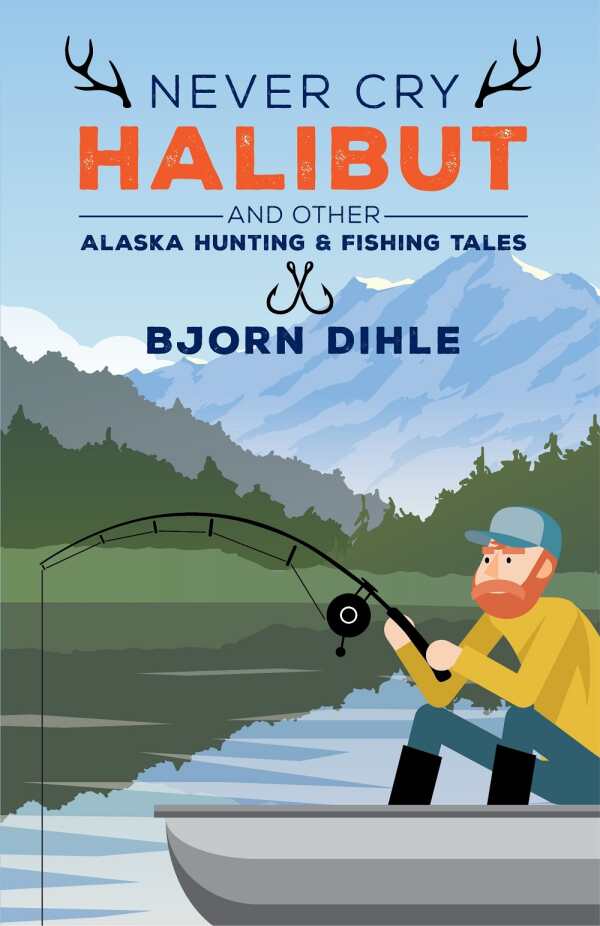Never Cry Halibut
And Other Alaskan Hunting & Fishing Tales
Bjorn Dihle’s fine essays speak to the greatness of the Alaskan outdoors.
When he was young, Dihle’s parents decided to move from Sacramento to Juneau, Alaska. His essays loosely chronicle his adventures from growing up there, including hunting his first deer, learning to fish, and exploring the world around him. The book is peopled by Dihle’s family and friends, who teach him much and who try to keep him from running off on too many harebrained schemes.
It pretty quickly becomes clear that the true star of the book is Alaska’s land and the wonders that surround Dihle in that great wilderness. Writing moves effortlessly from descriptions of grand vistas to small details of hunting trails, all mixed together with the drama of life and death.
But there’s also the blood and guts of hunting; the shots that Dihle takes are related with attention to detail. It’s not gratuitous; in Alaska, hunting is a way to harvest food, to find an excuse to explore nature, and to connect with fellow creatures.
Most of all, Dihle’s book is funny, and a range of it. There are slapstick-funny moments—accounts of people falling, tripping, and climbing trees. There are also puns galore. Picture teenage Dihle entranced by “hooters”—meaning wood grouse, not the other kind. This book is not highbrow, but it’s not too earthy, either.
Strong personal essays need to be about something more than just the person telling the story; they need to touch something grander and more important than a moment. Never Cry Halibut meets that bar, offering a collection that speaks to the human need to explore, understand, and dream about the wilderness beyond our door.
Reviewed by
Jeremiah Rood
Disclosure: This article is not an endorsement, but a review. The publisher of this book provided free copies of the book to have their book reviewed by a professional reviewer. No fee was paid by the publisher for this review. Foreword Reviews only recommends books that we love. Foreword Magazine, Inc. is disclosing this in accordance with the Federal Trade Commission’s 16 CFR, Part 255.

